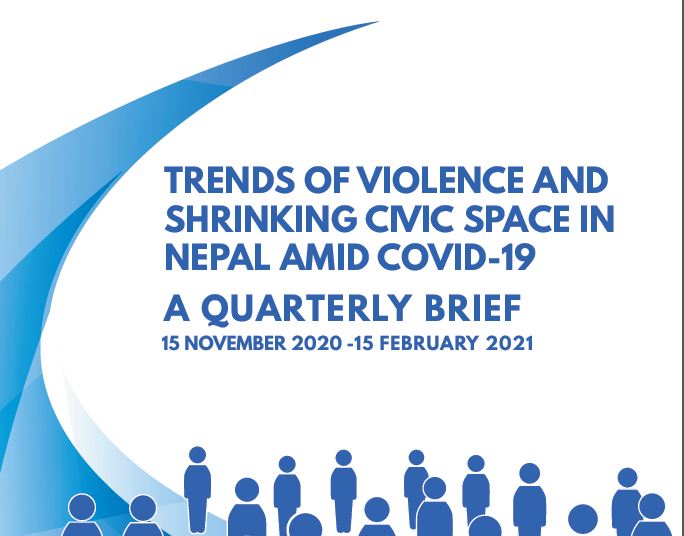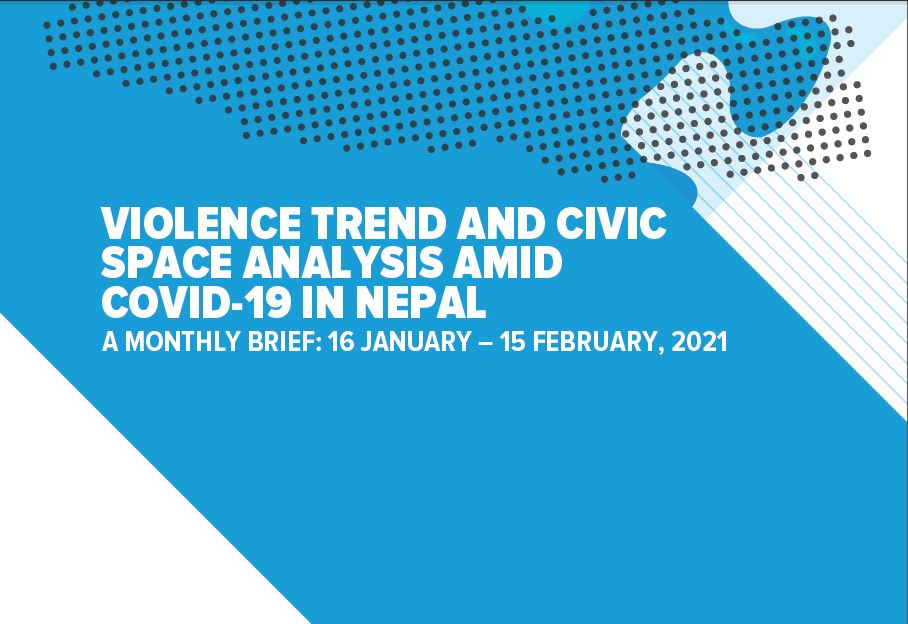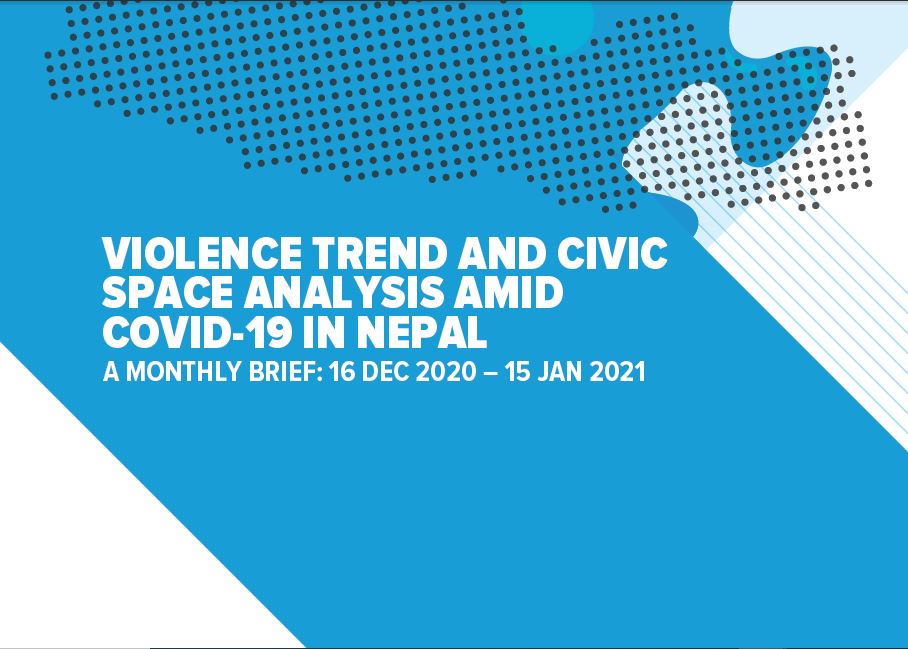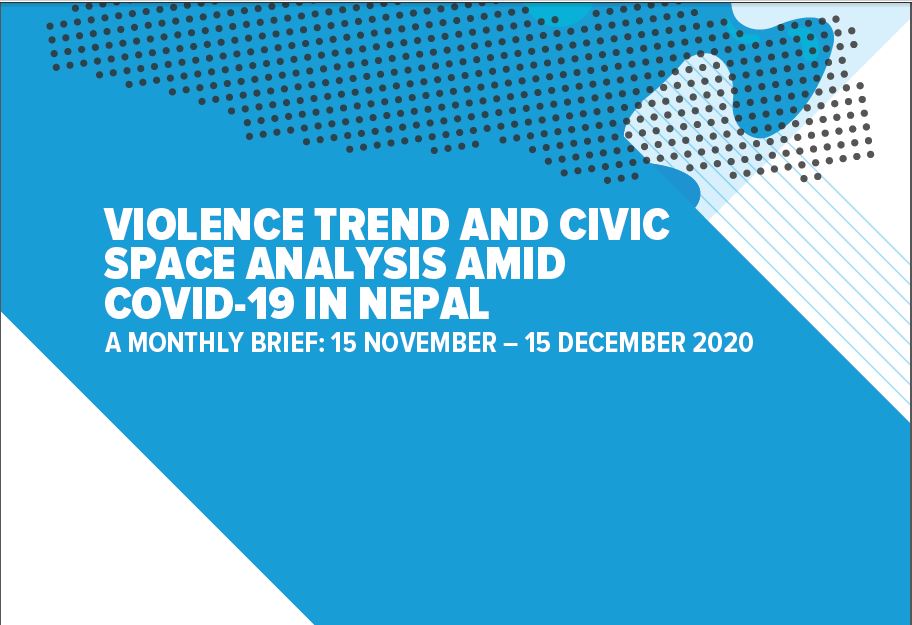Incident Reports
"UPR Mirror to the Human Rights Situation of the Country"
2014-12-22
Kathmandu, Biswabyapi aaodhik samichya manab adhikar awastha ko iina: adhikar karmi.
Human rights activists at a program organized in Kathmandu have said that the Universal Periodic Review (UPR) process is the mirror to the human rights situation of the country.
They expressed such view at a program on "Implementation Status of UPR Recommendations and Discussion on UPR 2015"organized by INSEC, secretariat of Nepal NGO Coalition for UPR on December 22.
INSEC Chairperson Subodh Raj Pyakurel said that a country's human rights situation is assessed through UPR based on the norms and values established of UN. He said that Nepal, which is considered to be top among the countries expressing commitment to international human rights instruments, lacked implementation of human rights commitment.
"There are challenges to make the rulers human rights friendly," Pyakurel said, adding that the analysis of annual budget through human rights perspective would make the country's commitment to human rights transparent.
Former member of the National Human Rights Commission Gauri Pradhan informed that three reports from Nepal Government, National Human Rights Institutions and Civil Society were presented during the 2011 review of Nepal. He said that the government, under any pretext, cannot escape from its responsibility to respect, protect and fulfill human rights. Saying that the international standard of human rights is same everywhere, he said that the human rights situation of a country is revealed through the UPR process.
Dilli Raj Ghimire, Joint secretary at the Ministry of Law, Justice, Constituent Assembly and Parliamentary Affairs said that there are plenty of challenges and opportunities in front of the Nepal Government to carry out human rights friendly activities. He added that the human rights situation of the country can only be improved through the cooperation between government, NHRIs and civil society.
Samjha Shrestha of INSEC, Basudev Bajgain of NHRC and advocate Hari Phunyal made presentations on introduction of UPR and its process and update on activities related to 2015 reporting and stage of consultation and report writing, situation of follow up on first cycle reporting on UPR in 2011 by Nepal and the mid-term Assessment on the recommendations of first cycle, implementation status of the UPR recommendations accepted by Nepal in UPR first cycle in 2011 respectively in the program.
Nepal government had received 135 recommendations in its first cycle of UPR in 2011. Of which, the government had accepted 56 recommendations with a commitment to implement them accordingly. The government had replied that 28 recommendations had already been implemented or were in the process of implementation while it rejected 15 recommendations.
Related Reports
HRD Issues / Rautahat
Rautahat correspondent of Himalaya Television assaulted by crusher staff
August 22, 2023
HRD Issues / Saptari
Saptari journalist on continuous protest demanding protection of press freedom and action against attack on journalist
August 14, 2023
HRD Issues / Parbat
Arrest permission under cyber crime issued against journalist after raising issue of irregularity over social media
August 10, 2023
HRD Issues / Sunsari
Journalist issued threat in Sunsari over news report
Province 1, Sunsari, Barah
July 25, 2023
Related Trend Analysis
Analysis

THE NEPAL PEACE MONITOR ANNUAL REVIEW: 2020
October 25, 2021
Human Trafficking / LGBT+ Rights / GBV / Political / Children’s Rights / Senior Citizens’ Rights / HRD Issues / Human Rights / Interpersonal Violence / Governance / Covid-19 / Civic-Space / PwD





